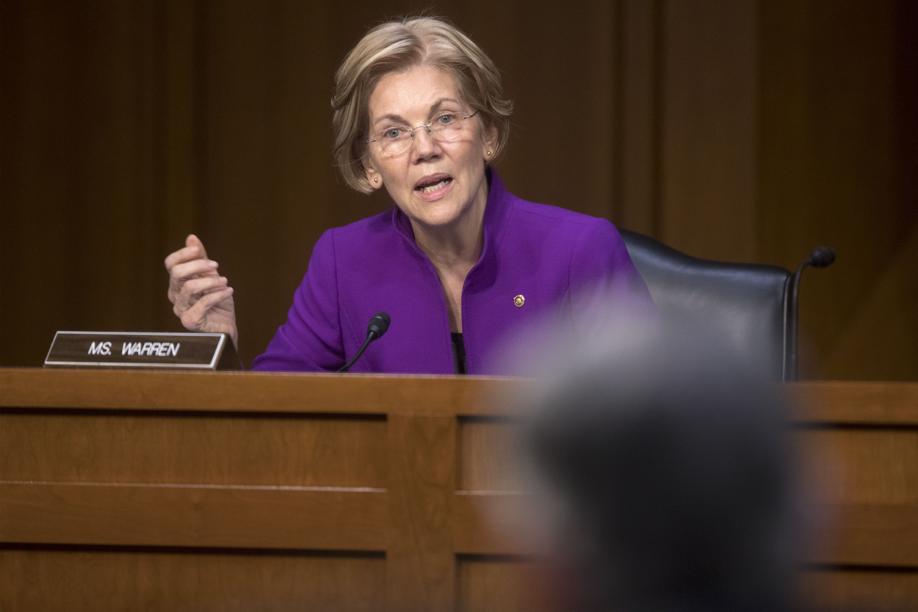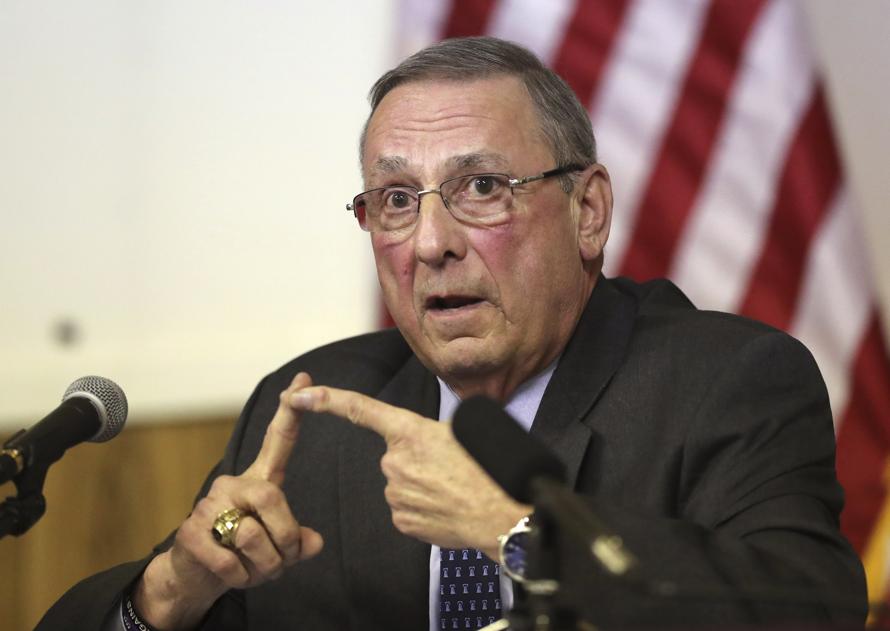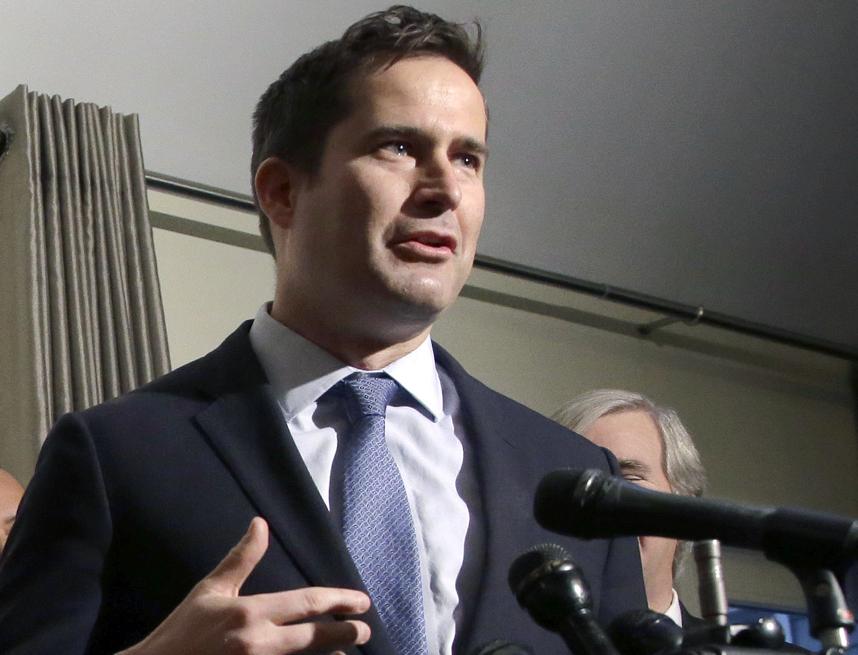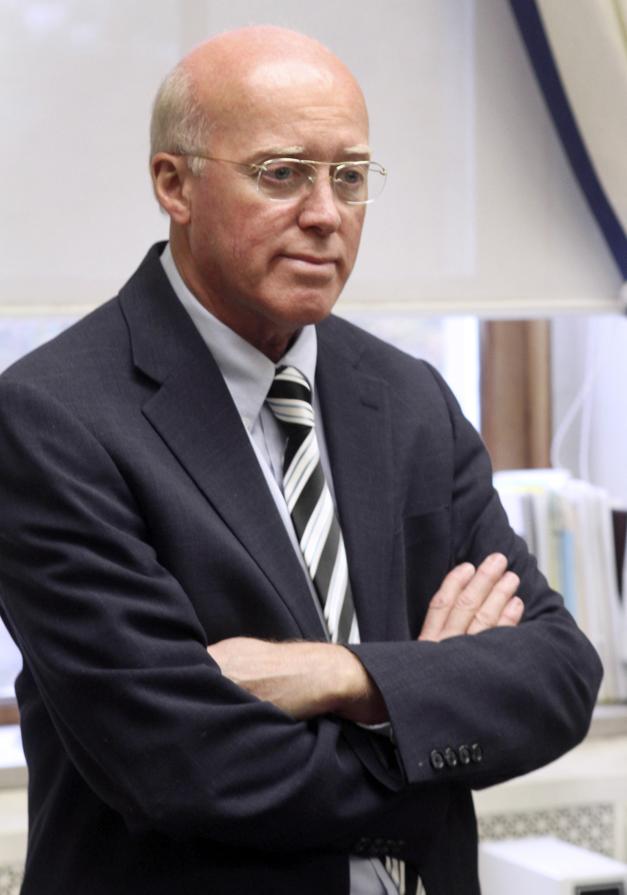For many in deeply Democratic New England, 2017 was a year full of bad news with President Trump and Republicans in charge. But it wasn’t all bad. In fact, for certain area politicians, the year was quite good, opening up opportunities they might not have had if Democrat Hillary Clinton were in the White House instead.
Indeed, 2017 was the year New England wrestled back the title as the ideological center of the Democratic Party, with Massachusetts Senator Elizabeth Warren and Vermont Senator Bernie Sanders now leading the Trump resistance. Trump has also been good for certain Republicans who backed the president early enough to enjoy the spoils of victory. For other Republicans, however, 2017 was a bit more complicated.
Here is a quick look at which politicians lost or improved their standing during Trump’s first year in office.
Elizabeth Warren/Bernie Sanders
Probably no two people have benefited more politically from Trump being in the White House this year than this pair of progressive firebrands. Had Clinton won, they would be simply a thorn in the side of the Clinton White House, watching their presidential ambitions pass.
Instead, they are the front-runners for the 2020 Democratic presidential nomination and the de facto leaders of a party considering its future for the first time in a generation without Bill or Hillary Clinton in charge.
Scott Brown
The former Massachusetts senator could have spent 2017 continuing to work in a New Hampshire bike repair shop and being a Fox News pundit. Instead, he is reaping the rewards of his support for Trump during the 2016 campaign. Brown is living a charmed life as US ambassador to New Zealand and Samoa. Sure, he had angled for a Trump Cabinet position, but being thousands of miles away from Washington sure has a lot fewer headaches.
Paul LePage
Maine’s controversial governor has argued that he was Trump before there was Trump. In many ways, he is right. But as the year closes, there is also this reality: As close as they are ideologically, LePage was basically shut out of Trump’s orbit from Day One.
Yes, LePage visited the White House several times this year, but there was little to show for it beyond Trump scaling back a national monument in his state, as LePage wanted. Many term-limited governors in LePage’s position would angle for something in Washington. But maybe Trump never forgot that LePage initially endorsed New Jersey Governor Chris Christie in the 2016 GOP presidential primary.
Linda McMahon
With all the millions of dollars her family has made from professional wrestling, McMahon would have had a nice life in Connecticut in 2017, regardless of what Trump was doing this year. But politically, she appeared to be done. She ran for the US Senate twice, sinking millions of dollars into each bid and getting body slammed each time.
Trump’s win, however, gave her a new lease on a political life. The president tapped her as the administrator of the Small Business Administration.
Maura Healey
The Massachusetts attorney general was already seen as a rising star in the Commonwealth. And by quickly, aggressively, and routinely suing the Trump administration this year, she grew a national reputation.
Politico named her as one of just 18 people to watch in the country. She was even invited to give the keynote address at the New Hampshire Democratic Party’s convention this fall.
Seth Moulton
While Healey was off to New Hampshire, home of the first presidential primary, Moulton, the congressman from Salem, went to Iowa, home of the first presidential caucuses. His message: In the wake of the Trump election, Democrats need to do better. “We can’t expect to start winning again if we keep doing the same old things. We have to get back to our party’s roots and back in touch with the voters we have lost,’’ he told Democratic activists gathered at an annual steak fry in Des Moines. The trip landed him on long lists of potential presidential candidates.
Jill Stein
The Lexington resident and two-time Green Party presidential nominee would have spent 2017 in obscurity if Clinton had won. Instead, her name is uttered by frustrated Democrats nearly every day, convinced that she is responsible for Trump’s win. (Stein received more votes in Michigan, Wisconsin, and Pennsylvania than Trump’s margin of victory in these states that swung the election.)
Additionally, the Senate is expanding its probe of Trump’s potential collusion with Russia to see whether Stein was also too cozy with the Russians. Unlike Trump, she actually went to Russia for a government-sponsored dinner a year before the election. This month, she said she was cooperating with the Senate’s request for documents — and said her campaign “observed the highest standards of transparency and integrity in our interactions with foreign nationals as well as Americans.’’
Bill Gardner
New Hampshire’s secretary of state, who has held his job for more than 40 years, began the year as something of a living legend as the keeper of the state’s first-in-the-nation presidential primary.
But then Trump got elected, and Gardner was appointed to serve on his commission looking into election integrity. Gardner’s participation on the panel and his position that unsubstantiated claims of voter fraud should be investigated led to several calls for his resignation and began to seriously sour his once-untouchable reputation.
Gina Raimondo
Raimondo became governor of Rhode Island by winning only 41 percent of the vote in a three-way race. Her approval rating still remains relatively low headed into reelection in 2018. She might have been in very dangerous territory had she run during Clinton’s first midterm election. But as it turned out, Trump might have spared Raimondo, given that his approval rating is even lower and is motivating the Democratic base to turn out next year.
Mitt Romney / Deval Patrick
The former Massachusetts governors were both affected by the Trump White House in different ways.
Romney’s year was the more complicated of the pair. He trashed Trump in unprecedented ways during the presidential campaign. Then, after the election, Romney lobbied Trump for the chance to be secretary of state. When that didn’t happen, he was back to tweeting his disagreements with Trump. He ended the year as a Utah resident potentially running for the US Senate — with Trump trying to block that idea.
The political world might have forgotten about Patrick in 2017, as he passed his year at Bain in the Back Bay — if not for the fact that some Democrats wanted him to look at a presidential run. That got people talking. Then there was the implausibly competitive US Senate race in Alabama that got Patrick to return to his civil rights litigant roots and to the campaign trail.
Martin J. Walsh
The mayor won easy reelection this year — as Boston incumbents generally do. But it didn’t hurt to have Trump as a foil at various points in the year. Last winter, Walsh lambasted Trump for threatening to cut funding from sanctuary cities and said, if it came to it, immigrants could move into his office at City Hall. His defiance made waves nationally.
Charlie Baker
As for the Massachusetts governor, 2017 was a mixed bag. While Trump is not helping the overall political environment for Baker’s reelection next year, Baker nonetheless ends the year as the most popular governor in the country, according to polls, partly because he was able to effectively distance himself from the leader of his own party.
Would he have preferred it if the Trump wing of his party were not so empowered locally? Sure. But he’s fine.
James Pindell can be reached at james.pindell@globe.com. Follow him on Twitter @jamespindell or subscribe to his Ground Game newsletter on politics: http://pages.email.boston globe.com/GroundGameSignUp.







